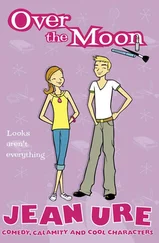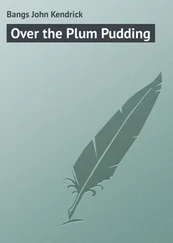John Galsworthy - Over the River
Здесь есть возможность читать онлайн «John Galsworthy - Over the River» весь текст электронной книги совершенно бесплатно (целиком полную версию без сокращений). В некоторых случаях можно слушать аудио, скачать через торрент в формате fb2 и присутствует краткое содержание. Жанр: Классическая проза, на английском языке. Описание произведения, (предисловие) а так же отзывы посетителей доступны на портале библиотеки ЛибКат.
- Название:Over the River
- Автор:
- Жанр:
- Год:неизвестен
- ISBN:нет данных
- Рейтинг книги:3 / 5. Голосов: 1
-
Избранное:Добавить в избранное
- Отзывы:
-
Ваша оценка:
- 60
- 1
- 2
- 3
- 4
- 5
Over the River: краткое содержание, описание и аннотация
Предлагаем к чтению аннотацию, описание, краткое содержание или предисловие (зависит от того, что написал сам автор книги «Over the River»). Если вы не нашли необходимую информацию о книге — напишите в комментариях, мы постараемся отыскать её.
Over the River — читать онлайн бесплатно полную книгу (весь текст) целиком
Ниже представлен текст книги, разбитый по страницам. Система сохранения места последней прочитанной страницы, позволяет с удобством читать онлайн бесплатно книгу «Over the River», без необходимости каждый раз заново искать на чём Вы остановились. Поставьте закладку, и сможете в любой момент перейти на страницу, на которой закончили чтение.
Интервал:
Закладка:
“To the Editor of The Times.
“The Three P. Plan.
“SIR—
“A simple plan for the balancing of our trade would seem to merit the attention of all those not wedded to the longest way round. There are three articles of food on importing which we expend annually some–pounds, but which could be produced in our own country without, I venture to think, causing the price of living to rise to any material extent if we took the simple precaution of hanging a profiteer at the beginning. These articles are Pigs, Poultry, Potatoes. There would be no need to put on duties, for all that is required is—”
But at this moment, becoming aware that Corven was passing from the room, he said:
“Hallo!”
Corven turned and came towards him.
Hoping that he showed as little sign of embarrassment as his nephew twice removed by marriage, Sir Lawrence rose.
“Sorry I didn’t see you when you called the other day. Have you got long leave?”
“Another week only, and then I shall have to fly the Mediterranean probably.”
“Not a good month for flying. What do you think of this adverse balance of trade?”
Jerry Corven shrugged.
“Something to keep them busy for a bit. They never see two inches before their noses.”
“‘Tiens! Une montagne!’ Remember the Caran d’Ache cartoon of Buller in front of Ladysmith? No, you wouldn’t. It’s thirty-two years ago. National character doesn’t change much, does it? How’s Ceylon? Not in love with India, I hope?”
“Nor with us particularly, but we jog on.”
“The climate doesn’t suit Clare, apparently.”
Corven’s expression remained watchful and slightly smiling.
“The hot weather didn’t, but that’s over.”
“Are you taking her back with you?”
“Yes.”
“I wonder if that’s wise.”
“To leave her would be less so. One’s either married or not.”
Sir Lawrence, watching his eyes, thought: ‘Shan’t go further. It’s hopeless. Besides, he’s probably right. Only I would bet—’
“Forgive me,” said Corven, “I must get these letters off.” He turned and moved away, trim and assured.
‘H’m!’ thought Sir Lawrence, ‘not exactly what you’d call fruitful.’ And he sat down again to his letter to The Times.
“I must get precise figures,” he muttered. “I’ll turn Michael on to it”… And his thoughts went back to Corven. Impossible, in such cases, to know where the blame really lay. After all, a misfit was a misfit, no amount of pious endeavour, or even worldly wisdom, would cure it. ‘I ought to have been a judge,’ he thought, ‘then I could have expressed my views. Mr. Justice Mont in the course of his judgment said: “It is time to warn the people of this country against marriage. That tie, which was all very well under Victoria, should now only be contracted in cases where there is full evidence to show that neither party has any individuality to speak of”… I think I’ll go home to Em.’ He blotted the perfectly dry letter to The Times, put it into his pocket, and sought the darkening, placidity of Pall Mall. He had stopped to look in at the window of his wine merchant’s in St. James’s Street, and consider once more where the extra ten per cent on his surtax was to come from, when a voice said:
“Good evening, Sir Lawrence!” It was the young man called Croom.
They crossed the street together.
“I wanted to thank you, sir, for speaking to Mr. Muskham. I’ve seen him today.”
“How did you find him?”
“Oh! very affable. Of course I agree it IS a bee in his bonnet about introducing that cross of Arab blood into our racehorses.”
“Did you show him you thought so?”
Young Croom smiled: “Hardly! But the Arab horse is so much smaller.”
“There’s something in it, all the same. Jack’s only wrong in expecting quick results. It’s like politics, people won’t lay down for the future. If a thing doesn’t work within five years, we think it’s no good. Did Jack say he’d take you on?”
“He’ll give me a trial. I’m to go down for a week, so that he can see me with horses. But the mares are not going to Royston. He’s got a place for them above Oxford near Bablock Hythe. I should be there if I pass muster. It’s not till the spring, though.”
“Jack’s a formalist,” said Sir Lawrence, as they entered the Coffee House; “you’ll have to mind your p’s and q’s.”
Young Croom smiled.
“You bet. Everything’s simply perfect at his stud farm. Luckily I really am frightfully keen about horses. I didn’t feel at sea with Mr. Muskham. It’s an immense relief to have a chance again; and there’s nothing I’d like better.”
Sir Lawrence smiled—enthusiasm was always pleasant.
“You must know my son,” he said, “he’s an enthusiast too, though he must be thirty-seven by now. You’ll be in his constituency—no, just out of it. You’ll be in Dornford’s, I expect. By the way, you know my niece is acting secretary for him?”
Young Croom nodded.
“I don’t know,” murmured Sir Lawrence, “whether that’ll go on now Corven’s over.” And he watched the young man’s expression.
It had perceptibly darkened. “Oh! it will. She won’t go back to Ceylon.”
It was said with frowning suddenness, and Sir Lawrence thought: ‘This is where I weigh myself.’ Young Croom followed him to the weighing machine, as if he did not know how not to. He was very red.
“What makes you sure of that?” said Sir Lawrence, looking up from the historic chair. Young Croom went even redder.
“One doesn’t come away just to go back.”
“Or one does. If Life were a racehorse it’d be always up before the stewards for running in and out.”
“I happen to know Lady Corven won’t, sir.”
It was clear to Sir Lawrence that he had lighted on a moment when feeling gets the better of discretion. So the young man WAS in love with her! Was this a chance to warn him off the course? Or was it more graceful to take no notice?
“Just eleven stone,” he said; “do you go up or down, Mr. Croom?”
“I keep about ten twelve.”
Sir Lawrence scrutinised his lean figure.
“Well, you look very fit. Extraordinary what a shadow can be cast on life by the abdomen. However, you won’t have to worry till you’re fifty.”
“Surely, sir, you’ve never had any bother there?”
“Not to speak of; but I’ve watched it darken so many doors. And now I must be getting on. Good-night to you!”
“Good-night, sir. I really am awfully grateful.”
“Not at all. My cousin Jack doesn’t bet, and if you take my advice, you won’t either.”
Young Croom said heartily: “I certainly shan’t, sir.”
They shook hands and Sir Lawrence resumed his progress up St. James’s Street.
‘That young man,’ he was thinking, ‘impresses me favourably, and I can’t think why—he appears to be going to be a nuisance. What I ought to have said to him was: “Thou shalt not covet thy neighbour’s wife.” But God so made the world that one doesn’t say what one ought!’ The young were very interesting; one heard of them being disrespectful to Age and all that, but really he couldn’t see it. They seemed to him fully as well-mannered as he himself had been at their age, and easier to talk to. One never knew what they were thinking, of course; but that might be as well. After all, one used to think that the old—and Sir Lawrence winced on the kerbstone of Piccadilly—were only fit to be measured for their coffins. ‘Tempora mutantur et nos mutamur in illis’; but was that true? No more really than the difference in the pronunciation of Latin since one’s youth. Youth would always be Youth and Age would be Age, with the same real divergence and distrust between them, and the same queer hankering by Age to feel as Youth was feeling and think as Youth was thinking; the same pretence that it wouldn’t so feel and think for the world, and, at the back of all, the instinct that, really given the chance, Age wouldn’t have its life over again. Merciful—that! With stealthy quietude Life, as it wore one out, supplied the adjustment of a suitable lethargy. At each stage of existence the zest for living was tailored to what man had before him and no more. That fellow Goethe had attained immortality to the tunes of Gounod by fanning a dying spark into a fullblown flame. ‘Rats!’ thought Sir Lawrence: ‘and very German rats! Would I choose the sighing and the sobbing, the fugitive raptures and the lingering starvations in front of that young man, if I could? I would not! Sufficient unto the old buffer is the bufferism thereof. Is that policeman never going to stop this blamed traffic?’ No, there was no real change! Men drove cars now to the same tick as the old horse-bus and hansom-cab drivers had driven their slipping, sliding, clattering gees. Young men and women experienced the same legal or illegal urge towards each other. The pavements were different, and the lingo in which those youthful hankerings were expressed. But—Lord Almighty!—the rules of the road, the collisions and slips and general miraculous avoidances, the triumphs, mortifications, and fulfilments for better for worse, were all the same as ever. ‘No,’ he thought; ‘the Police may make rules, Divines write to the papers, Judges express themselves as they like, but human nature will find its own way about as it did when I was cutting my wisdom teeth.’
Читать дальшеИнтервал:
Закладка:
Похожие книги на «Over the River»
Представляем Вашему вниманию похожие книги на «Over the River» списком для выбора. Мы отобрали схожую по названию и смыслу литературу в надежде предоставить читателям больше вариантов отыскать новые, интересные, ещё непрочитанные произведения.
Обсуждение, отзывы о книге «Over the River» и просто собственные мнения читателей. Оставьте ваши комментарии, напишите, что Вы думаете о произведении, его смысле или главных героях. Укажите что конкретно понравилось, а что нет, и почему Вы так считаете.












